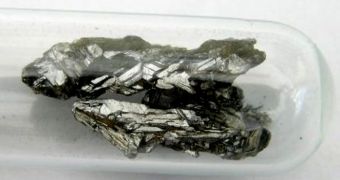According to a new scientific investigation, it may be that certain genetic variations occurring in a specific subset of the general population may be increasing the risk these people have of being poisoned with the chemical arsenic. This is the same stuff that has been used over the centuries by various people to eliminate those that were in their way. Arsenic-based poisons are still common to this day, Chemistry World reports.
The chemical comes in two varieties, the organic and inorganic ones. The latter is the most toxic to humans, and is preferred for nefarious purposes. The former is metabolized to some extent in the body, although the exact process involved is still unclear. Researchers have yet to learn how the chemical reactions underlying organic arsenic metabolism work, but they were able to discover the primary source. They say that seafood is the main “portal” through which the chemical enters the human body.
The stuff can easily accumulate in various tissues, and health experts believe that large concentrations can be detrimental to one's health. The new investigation, conducted by scientists at the University of Taipei, in Taiwan, determined that the rise of arsenic concentrations in the bloodstream may be owed to genetic factors as well, rather than only to environmental ones. For people living in the coastal regions of Asia, such as in Japan and Taiwan, elevated levels of arsenic in their urine is common. But previous investigations have determined that some of the people moving from these areas to, for example, New York, tend to maintain the same amount or arsenic in their bodies.
That is why the UT team decided to investigate whether a potential genetic factor may be underlying this predisposition to retaining the dangerous chemical. The group determined that three polymorph genes – which exist in different forms – are responsible for the elevated levels of organic arsenic. The culprits, called As3MT, PNP and GSTO1, were found to exist in only specific forms in the analyzed batch of 50 test subjects. Additionally, the particular form of the As3MT gene that the group discovered in the participants is the one most common in populations from South Korea and Japan.

 14 DAY TRIAL //
14 DAY TRIAL //